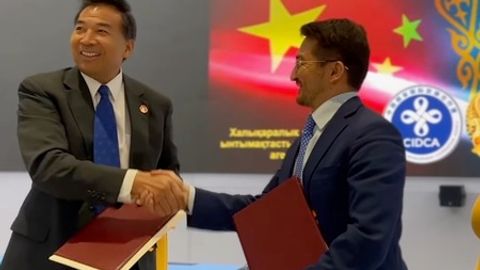Uzbekistan to begin overhaul of 178-km highway linking Afghanistan and Tajikistan
21:09 / 27.02.2026
Uzbekistan builds 500 kV open switchyard in Navoi Region
19:55 / 27.02.2026
Uzbekistan’s oil and gas firm Uzbekneftegaz saves $90.2mn in first 50 days of reforms
18:15 / 27.02.2026
EBRD supports expansion of domestic pharmaceutical production in Uzbekistan
17:08 / 27.02.2026
Uzbekistan’s Tax Committee studies Russia’s experience in monitoring influencer income
15:00 / 27.02.2026
Recommendations
Menu
Good news:
Tags
Grow your business with us
Advertise on Daryo.uzIndividual approach and exclusive materials
Ad-free site readingSubscribe
25 000 sum per month






Comments
To leave a comment, first